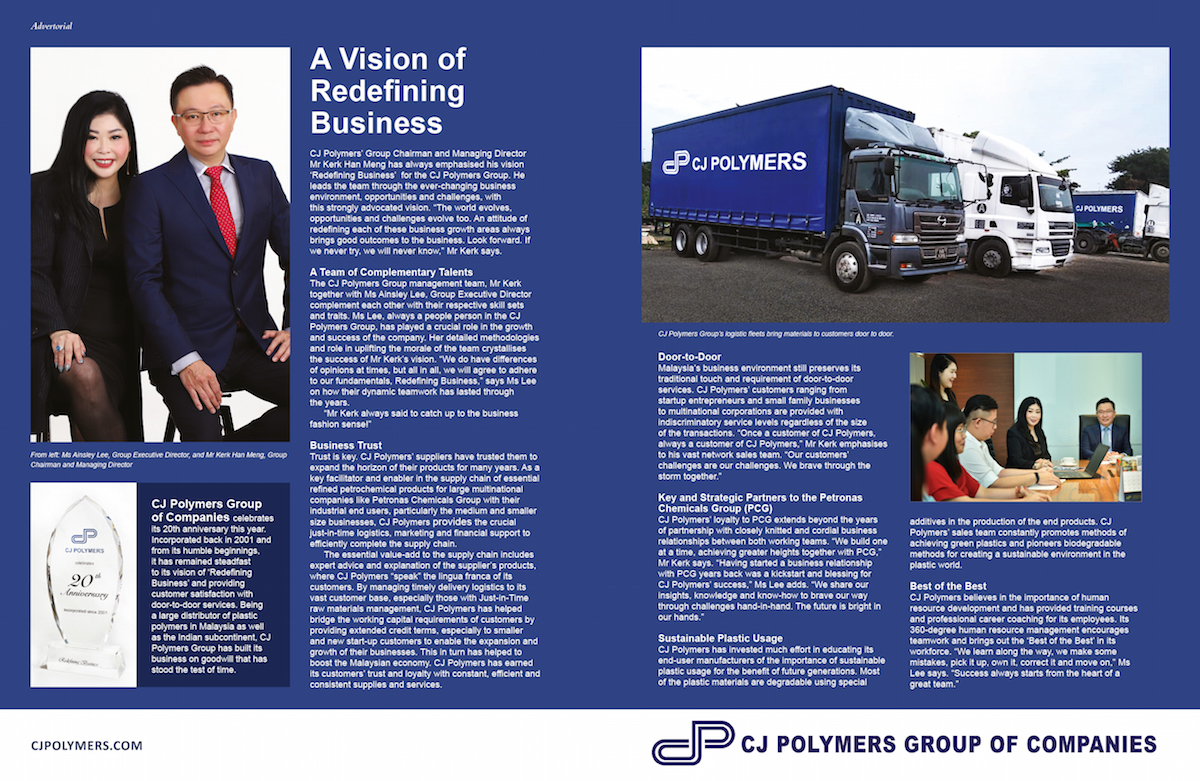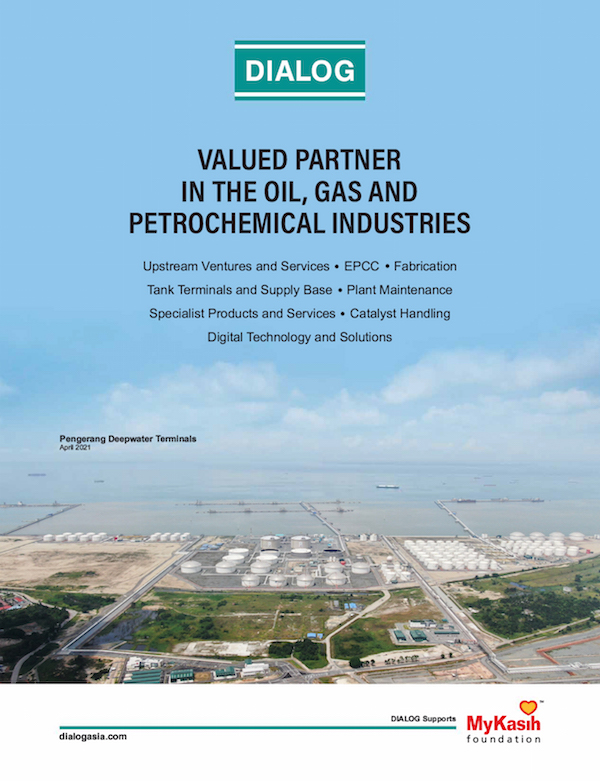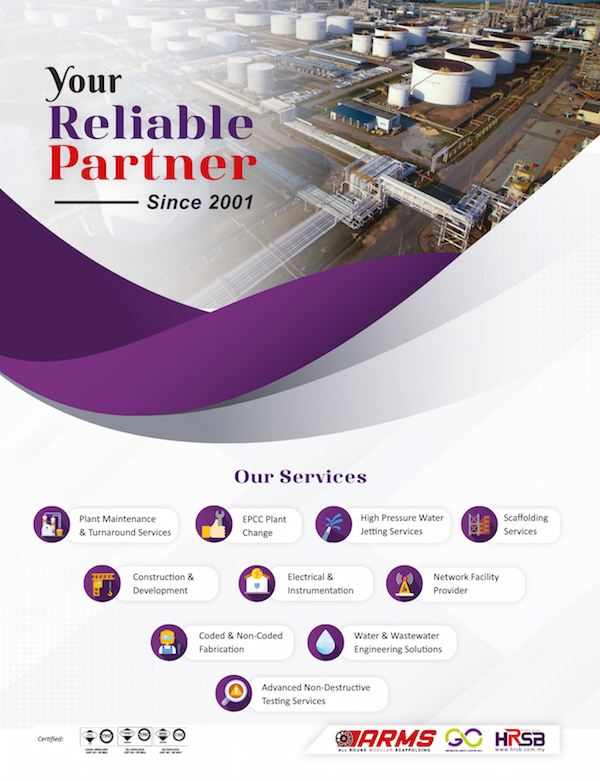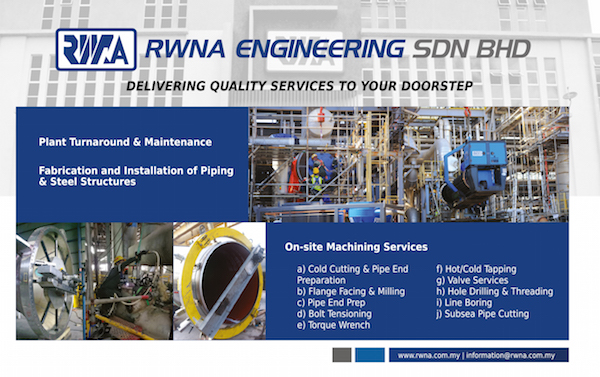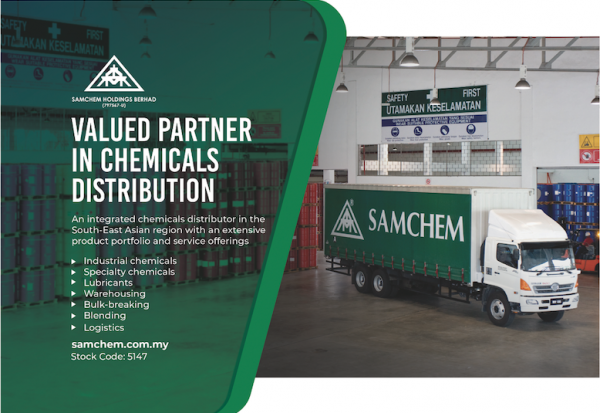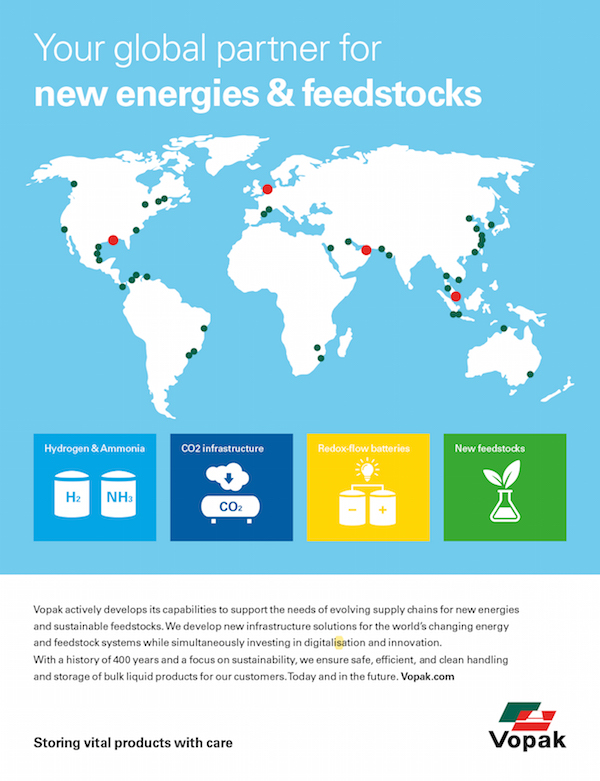Malaysia’s economy is buttressed by a buoyant and prolific oil and gas industry. The country’s robust reserves are estimated to be in the vicinity of four billion barrels. Pre-COVID-19, up to one-fifth of its gross domestic product was oil and gas.
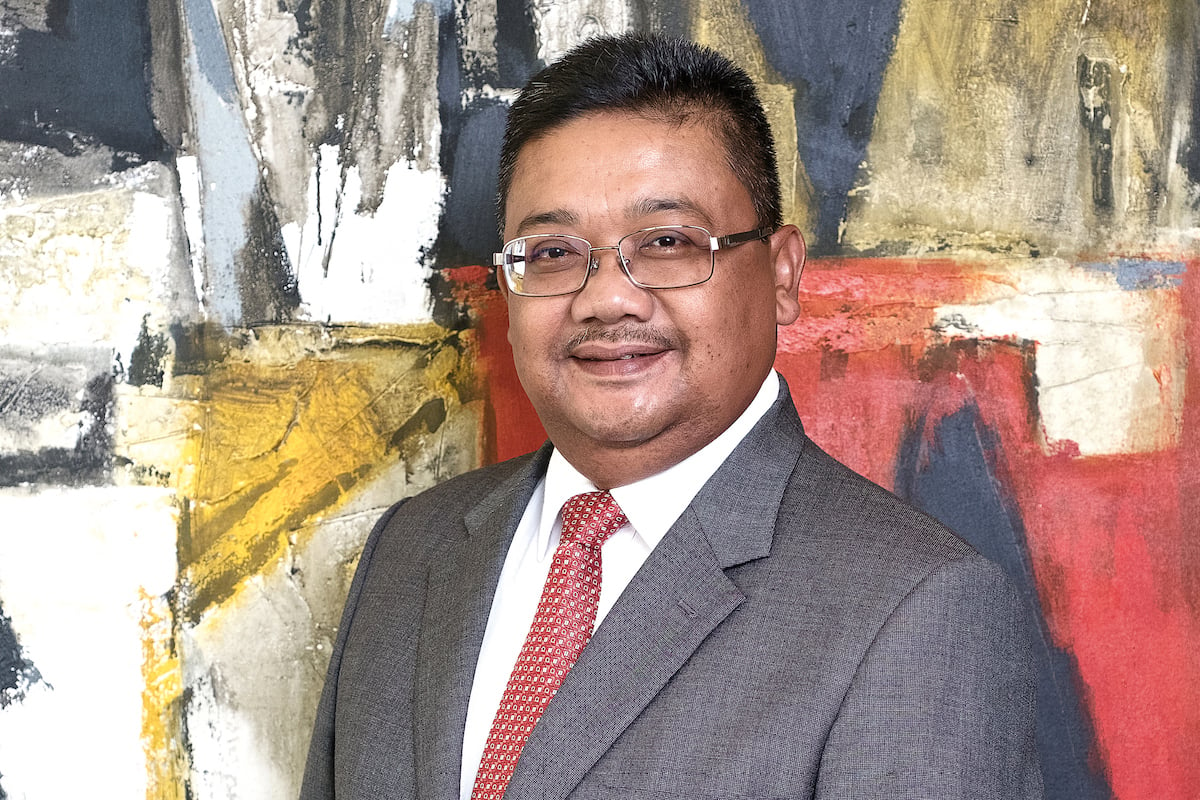
Much of today’s industry is centred around East Malaysia, where deep reservoirs of oil and gas were discovered by Royal Dutch Shell in 1910. That first oil well was prologue; in the years following Malaysia’s independence from the UK in 1957, swathes of oil and gas fields were tapped in Malaysian Borneo.
As fuel giants Exxon and Malaysian veteran Shell began to explore these finds, the royalties and taxes they paid to the fledgling Malaysian government led to unprecedented economic growth. To keep the blossoming sector under careful control, the state established Petroliam Nasional (PETRONAS) as the national oil company in 1974.
Under its watch, Malaysia’s oil and gas industry grew to be the stanchion it is today. PETRONAS itself covers the gamut from exploration and production of crude oil, refining and trading of crude oil and petroleum products, to petrochemical production to gas and infrastructure development to a retail product range sold in more than 90 countries around the world.
The organisation has also expanded into renewable energy. In 2019, it made a major push into the solar energy space with its M+ rooftop solar range. The offshoot, PETRONAS New Energy, provides a range of clean energy options and battery storage, while its Hydrogen division is specifically focused on that alternative and built on the company’s history of blue hydrogen extraction Diversification is an important part of PETRONAS’ growth, with over 100 wholly owned subsidiaries under the Group’s belt.
But the global thirst for oil and gas and their associated chemical by-products is far from being slaked, and this continuing demand has provided multiple generations of Malaysians with long and rewarding careers in resources.
Fuel for thought
Until the 1970s, a group of companies collectively known as “the seven sisters” dominated the oil and gas industry. The companies – BP, Shell, Chevron, Gulf Oil, Texaco, Esso and Mobil – controlled the vast majority of global oil reserves, primarily located in the Middle East. When oil companies experienced an embargo in 1973, the world was plunged into a crisis that saw fuel prices skyrocket. Although the oil crisis only lasted a matter of months, the ramifications were significant, prompting the resource-holder governments to set up national oil companies, including Malaysia. In the decades that followed the 1973 oil crisis, Indonesia and Malaysia rose to the top of the region’s oil industry. The embargo of 1973 helped to line the coffers of state-owned oil companies in other regions and set the stage for an industry overhaul. Second only to Indonesia in terms of South-East Asian oil and gas production, Malaysia’s strong position has a lot to do with the efforts of PETRONAS. In a clear assessment of the corporation’s might, in 2007, the Financial Times named PETRONAS one of the “new seven sisters”.
For any bright-eyed supplicant looking to put their engineering degree to work, PETRONAS – with its diverse range of products that extends far beyond its oil and gas origins – has long been a sought-after destination. Joining the dominant industry player in a global resource hub is a win in anyone’s book, but for some, it’s not enough to get a foot in the door; it’s about where the door leads.
Chemical catalyst
Sazali Hamzah was an engineering student during the 1980s. Malaysia’s economy, hit hard by the stock market crash of 1987, was still in recovery mode. Jobs were scarce, even for graduates.
Determined to put his chemical engineering knowledge to work, Sazali set his sights on the chemical industry but found little joy. His first choice was PETRONAS, but it was unable to take on permanent staff at that time.
“The only other company that interested me at that time was a manufacturer of ceramic tiles,” he recalls. “I’d done a course on ceramics, but I was keen to learn more, so I joined the company and began to apply my knowledge and hone my skills.”
The Malaysian economy proved more resilient than many around the world, and by 1990, things were bouncing back. PETRONAS had regained sufficient strength to flex its muscles beyond the country’s borders, instigating a hiring push. That year, Sazali got a fateful call. “They called me to discuss a job at their refinery in Malacca,” he remembers.
“During the interview, I was quite impressed because the interviewer talked about chemical engineering in such a casual way. It was a normal thing to him. He clearly had a background in it.”
The realisation affected Sazali: “I understood that this organisation could widen my perspective and introduce me to a larger world.” PETRONAS had held more than a passing interest to Sazali for some time; he recalls passing an old petrol station on his high school bus route emblazoned with the company’s logo.
Knowing the technology, knowing the theory, knowing the principles isn’t enough unless i’m in the driver’s seat.
“It really captured my attention,” he says. “I wondered what they made, what type of business they were in. I knew it had to do with petrol, but I didn’t know how they actually produced their products.” Sazali didn’t have to wait long to find out. When he went for an interview for a scholarship to further his studies abroad, he says,
“They asked why I wanted to study overseas. I told them it was so I could one day join PETRONAS. They made me an offer right there, and that was where my journey began. I didn’t have a very clear vision of what I wanted to be, but that interviewer’s candour really swayed me. I was happy – and lucky – to get the offer.”
Sazali’s first posting as a PETRONAS employee was to the company’s refinery in Kerteh, Terengganu. “That was the first refinery they built in Malaysia,” he says. By the time he arrived, Kerteh had become a sort of feeder post for bigger things. “I was trained there as preparation to run the bigger facility they were building at the time in Malacca, so I’d be ready when it opened in 1994.”
What surprised Sazali was the amount of autonomy he was given over his progression within the company. “I was very straight to the point. I told them I wanted to be in a technical department and learn from it. I wanted to apply my engineering knowledge in the practical world, within the real industry. And that’s what I was getting at Kerteh,” he shares, likening the experience to a cat being given a new toy.
“It starts playing with it without realising it has missed lunch; it is not sleeping. It just really likes to play, and that’s how I felt.” The job would only last two years, although the experience would stay with Sazali for a lifetime.
“I realised that knowing the technology, knowing the theory, knowing the principles isn’t enough unless I’m in the driver’s seat,” he says. The realisation became a statement of intent as he progressed through PETRONAS. “My boss asked if anyone was interested in joining operations. To go from an engineering role to actually operating the plant was the perfect opportunity.”
The culmination of Sazali’s journey came in 2014, when he was named Managing Director and CEO of PETRONAS Chemicals Group Berhad (PCG). Having come from the factory floor means a lot to him and, he says, to his team. “I’d been exposed to the inner workings, and that’s exactly the kind of experience you need to take the lead.”
Brave new world
Established on 17 August 1974 as the national oil company for Malaysia, PETRONAS, which is wholly owned by the Malaysian government, is the corporation vested with the country’s entire oil and gas resources, and is entrusted with the responsibility of developing and adding value to these resources.
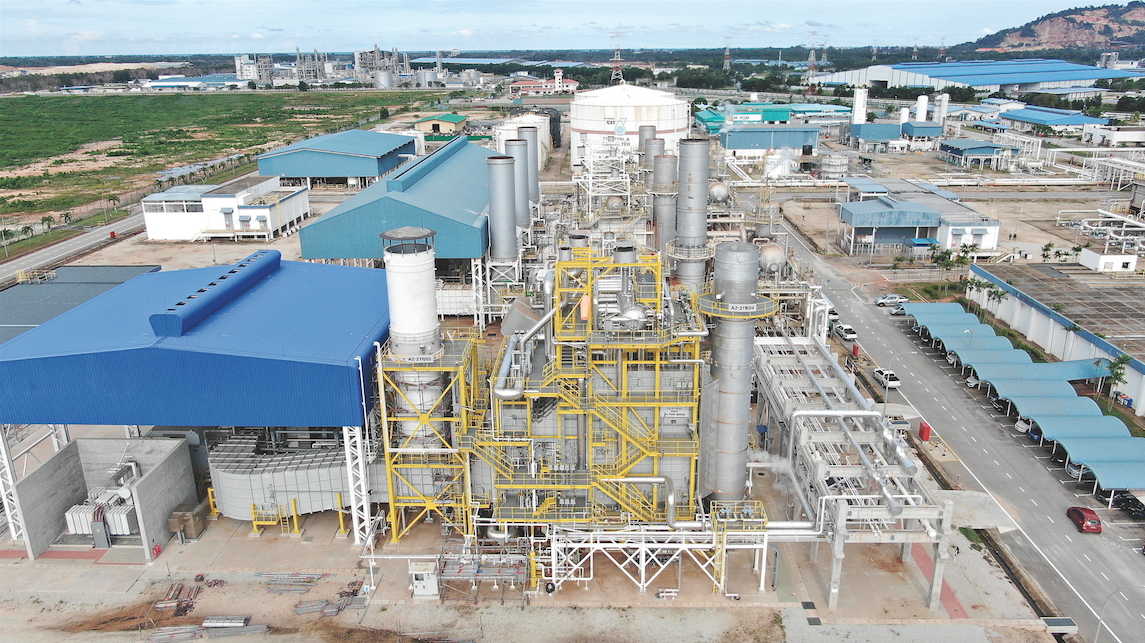
The organisation has grown from just being the regulator of Malaysia’s upstream sector into a fully integrated oil and gas company. PETRONAS’ growth meant the company could afford to diversify into many sectors beyond oil and gas.
PCG was established as part of the PETRONAS Group to maximise value from Malaysia’s natural gas resources. Established in 1985, PCG has grown in tandem with its parent. Its portfolio of products has grown to include polymers, methanol, fertiliser in addition to other derivatives. In 2010, PCG went public, further helping to establish its own identity.
“One advantage we have is that we can produce products at competitive prices and also sell directly to customers, who are very near to us,” Sazali points out. “And because we’re from the Asia–Pacific region, we understand the culture. We can have those kinds of close relationships with customers because we know them.”
In fact, for PCG, local people are an asset in and of themselves. It’s a point of difference that Sazali says is very personal. “We want to groom local people to be successful by leveraging the business we’re in. I was introduced to PETRONAS in that way, and I’ve passed that on,” he explains.
According to him, locals were recruited, educated and certified while they forged their careers with PETRONAS. “We’ve developed them since the early days of their careers, where they continue to progress and grow with us.” It’s a similar story for contractors engaged by PETRONAS, Sazali adds.
“Back then, we’d work with startups and contractors frequently, and as we grew, they grew,” he says. Eventually, the contractors grew to the same global level as PETRONAS. “They have also become publicly listed companies playing in the global arena.”
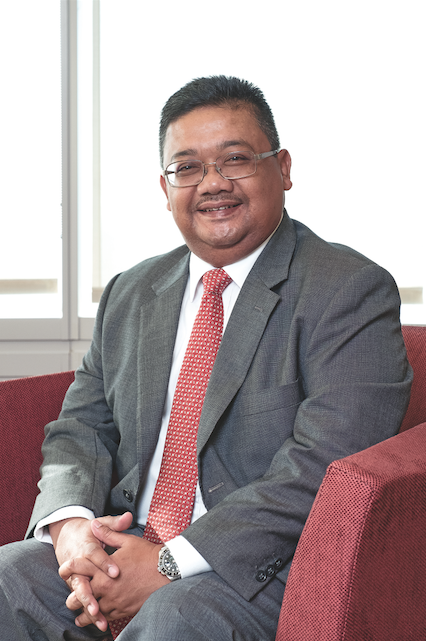
Investment in the community has had other unexpected, pleasant side effects. At the Kerteh plant where Sazali got his start, the surrounding area has evolved over the decades. “It was a place with very basic facilities,” he reflects.
“Now, the economy within the area has flourished with a shopping complex, fast-food restaurants and other public facilities. This environment was made possible by our investment to spur the local economy.”
The formula has worked in other plants as well, with Malacca and Sipitang both seeing community growth around PETRONAS’ facilities. It’s even effective overseas: a recent PCG acquisition – a specialty chemical company – was subjected to the Malaysian model.
“We groomed the people within the organisation, expanded the business, recruited more locals,” he says. “We took what worked at home, and found it worked out there as well.” The community touch even manifests itself in very simple ways. During a recent customer engagement session in Malaysia, Sazali was surprised to find himself face to face with a childhood friend. “Turns out he’s one of our biggest customers,” he laughs.
“We’d played together in our village as children, never imagining one day we’d be connecting the dots in this industry.”
Opportunity knocks
Along the way, Sazali has taken advantage of opportunities to work with technicians on the front line, to understand the physical side of the job. “You have to start the plant, run compressors, boilers, all sorts of equipment,” he says.
“But your emotional responses will be tested in the event of a plant emergency. It’s a lot of responsibility, but a great chance to make the right decision.” And it was opportunities like this, Sazali reveals, that set PETRONAS apart in the industry – and continue to do so.
Because we’re from the Asia–Pacific region, we understand the culture. We can have those kinds of close relationships with customers because we know them.
“The opportunity to learn from world-class people is so rare, and yet here it is,” he confirms. “There are so many opportunities to learn.” Firmly of the belief that a job should be an extension of study, Sazali says PETRONAS had no shortage of mentors and teachers.
“We once had to commission a new plant, and I had to work with a French specialist to develop the required technology,” he recalls. Together the pair planned the plant’s infrastructure, a powerful learning opportunity for Sazali.
“He had years of experience. He was excellent.” The situation was in keeping with PETRONAS’ “from scratch” history, Sazali believes. Created from nothing in response to an extraordinary situation, it was a perfect example of learned experience. “The national oil company was built up from a clean piece of paper,” he says.
“So although we’re a lot younger than other global oil companies, we learned from the lessons they learned.” Despite this, many within PETRONAS felt the company had to forge its own path. “That’s why we strive to get all the right people to develop our systems, our functions, our organisation,” Sazali stresses.
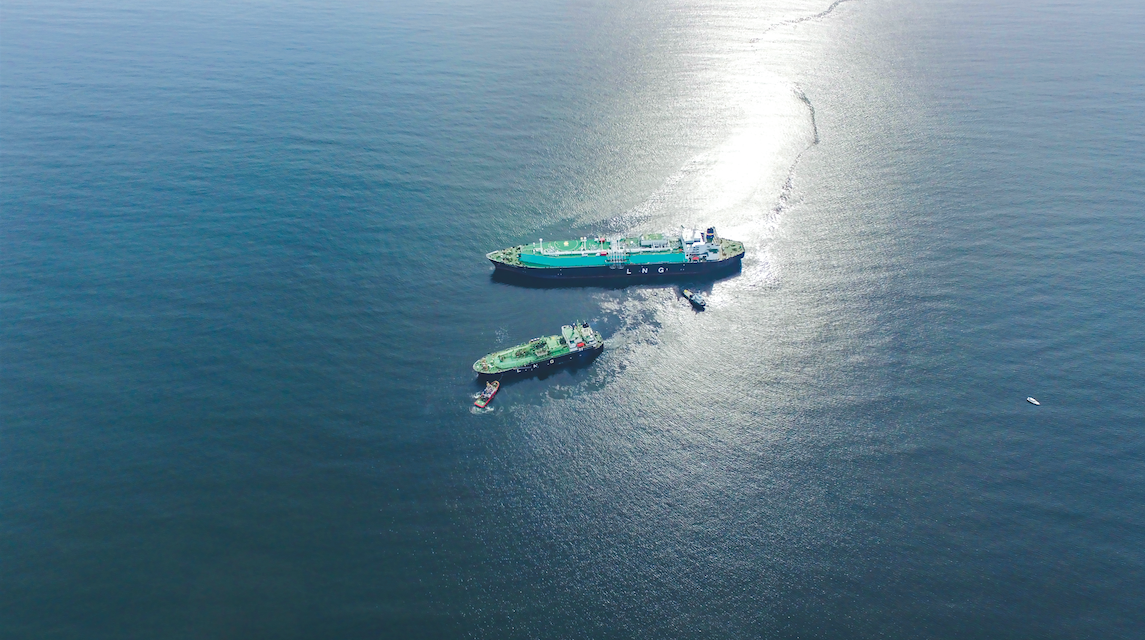
“And that’s when you end up with an optimised operation. When assets are fully integrated, the business is highly competent. That is, I think, one of the things that makes PETRONAS as successful as it is.”
Going viral
COVID-19 has impacted our lives in a very big way, with all of us having to make many changes. Businesses were not spared either, and it has been tough for most companies. The petrochemical industry was impacted by lower prices caused by the crude oil price crash as well as lower demand due to the slowing of the manufacturing sector.
However, the petrochemical industry has since shown resilient performance, despite the global economic recession. PCG has been reporting steady profits since the first quarter, despite operating in an unprecedented environment, and it reported a profit after tax of MYR1.6 billion (US$385 million) for the financial year ended 31 December 2020.
“While most in the industry had not anticipated the scale of the COVID-19 outbreak, we were always prepared to handle crises like that. Just two weeks before the pandemic hit Malaysian shores, we engaged in a table-talk exercise for a large-scale pandemic,” Sazali says.
The move resulted in a heightened awareness that paid off when things became challenging. PCG immediately got in touch with its customer base – mainly centred in Malaysia and the greater Asia–Pacific region – to monitor the situation. “We had to divert some of our products to prepare ourselves for the challenges ahead,” Sazali shares.
“We knew supply chains would be affected, so we worked with the authorities to strengthen our safety procedures to ensure the wellbeing of our staff and contractors working during the pandemic. Our operation is imperative at times like this to ensure continuous supply of plastic raw materials, which are used to produce essential personal protective equipment, such as single-use gowns and gloves, and sanitiser, and to educate others about the situation. We also invested in respiratory equipment for the medical response.”
Before long, the PCG tanks began to replenish, thanks to Sazali’s astute management. “Early on, I’d say the entire industry was running at about half its capacity,” he reveals. “If that had continued much longer it would have been a cause for alarm, but thankfully, we were able to resolve our issues and restart the flow of product.”
Much of that product was diverted to Malaysia, South-East Asia and Asia–Pacific, where production could continue unabated. “Our customers were also very thankful during that time because we were able to regain our composure so quickly,” he adds.
When the rest of South-East Asia felt the brunt of the pandemic’s wrath, PCG simply shifted its product volume back to China, which by that point had largely recovered. “That’s the kind of flexibility we have in our South-East Asia network,” Sazali says. “If our customers can’t receive our products from one place, we can divert them somewhere else.”
With the first wave of COVID-19 well managed by Sazali and his team, PCG was able to ride the second and third waves. “We’d already gone through the process by that point. We could respond efficiently and maintain customer satisfaction,” he states proudly.
Only the price upsets within the Organization of the Petroleum Exporting Countries have caused any lasting distress to PETRONAS’ bottom line, he says, and even that is on the mend. “We still had a profitable business in 2020.”
Taking the lead
With Sazali’s steady hand on the tiller, things went rather smoothly for PCG in such a challenging period. For the man himself, he feels the same way about the organisation. “PETRONAS grows its leaders very well, so I have the company to thank for my talents,” he says.
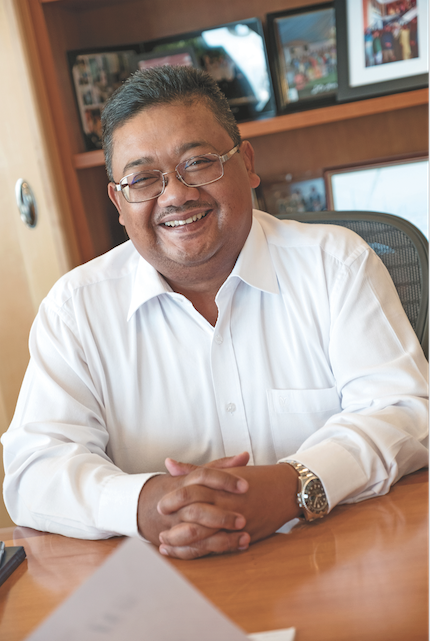
“During a crisis like COVID-19, you see that developed strengths emerge as a defence mechanism. Certainly, my team responded with full professionalism.” At PCG, Sazali often finds himself between two strong elements: the team working below him, and management above. “If I have a secret, that’s it. We’ve got a good team aligned with good leadership. It makes life much easier.”
When you’re in charge of one of the biggest corporations in South-East Asia, life away from the office needs to be easy. Sazali says he spends much of his with his family or on the golf course. “I’m not a fanatic. I don’t play every week, but I do like playing golf,” he shares.
“Whenever I do, I’m put in such a peaceful state of mind, particularly when I’m playing by the beach. It’s not competitive either, just a fun, casual game.” Most of his weekends are spent with his school- and college-going children. “It’s quite a precious time for me to spend with them,” Sazali smiles.
“I work hard to give them the platform they need to achieve independence of their own in the future, but it’s so important for me to spend time with them. Who knows? Maybe 10 years down the road when they’ve completely grown up, perhaps I’ll switch hobbies.”
An independent future
For the time being, Sazali’s work at PCG shows no sign of slowing down. The company is working towards supporting PETRONAS’ goal of net zero carbon emissions by 2050, a target that will require hard work and long hours from the CEO and his team.
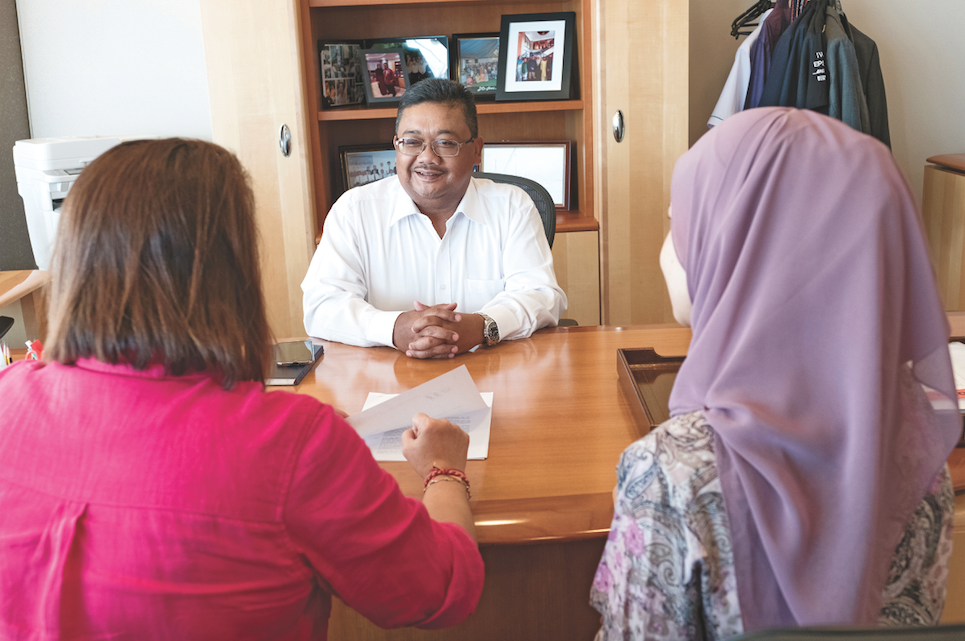
Demand for polypropylene, an essential element of PPE production, remains strong, something Sazali hopes will allow PCG to stand entirely on its own in the future. “My vision for PCG is to continue reducing our carbon footprint through diversification,” he says.
“That’s why we’re working so hard to venture into specialty chemicals. As a chemical engineer, I’m very interested in making that our foundation. There are such vast opportunities in chemicals.” “As we are moving into specialty chemicals, our aspiration is for specialty chemicals to make a substantial contribution to our product portfolio in the next 15–20 years and this is expected to double our earnings by then.”
Sazali says his experience during the pandemic shows that relying on oil and gas is no longer the sure thing it once was. “We can’t depend as much on our existing resources going forward,” he insists.
“My impression is that if we’re going to continue to grow profitably, we need to diversify our feedstock and product portfolio into specialty chemicals, as well as look into the sustainability aspect in the future.”
Proudly supported by:
